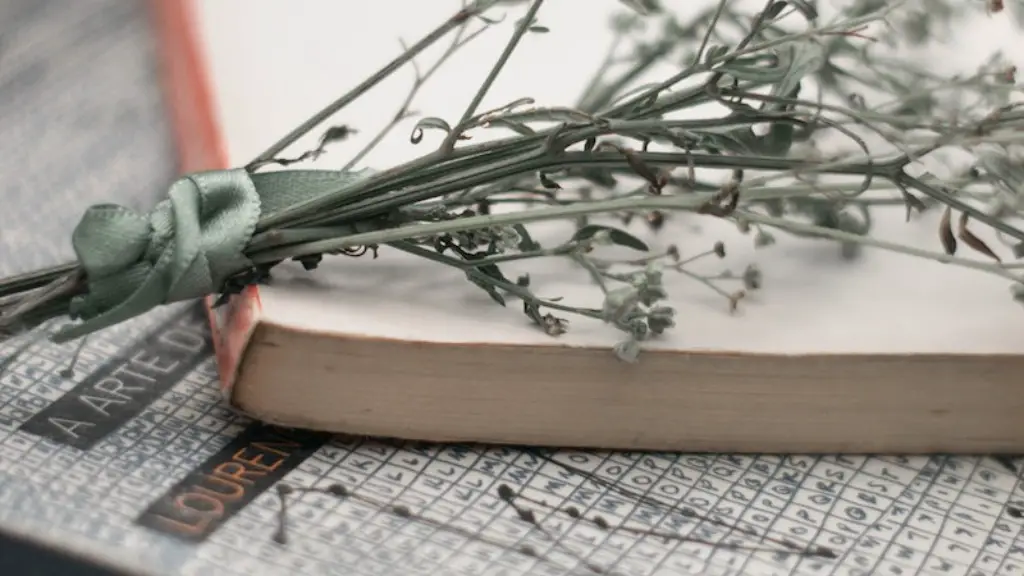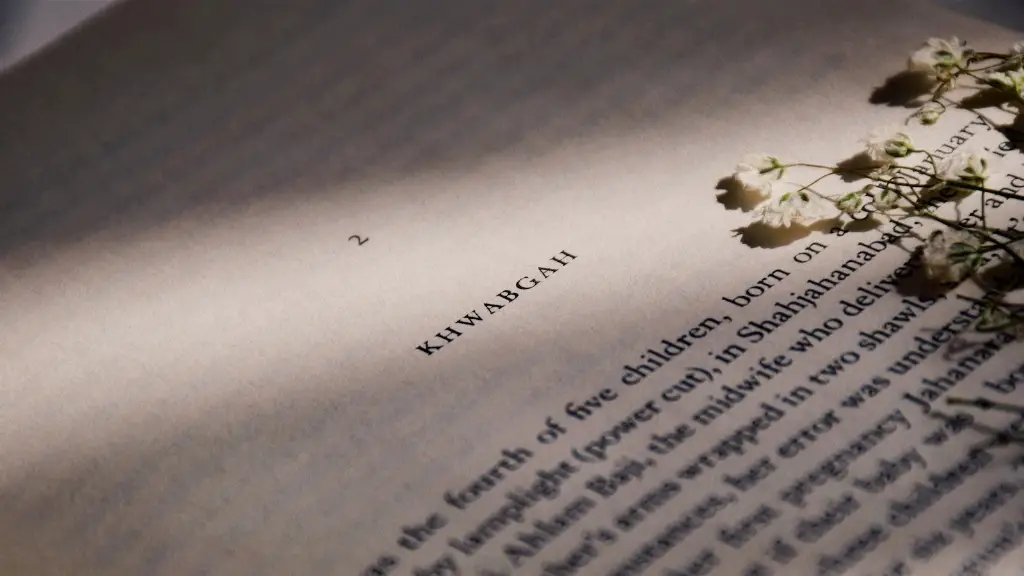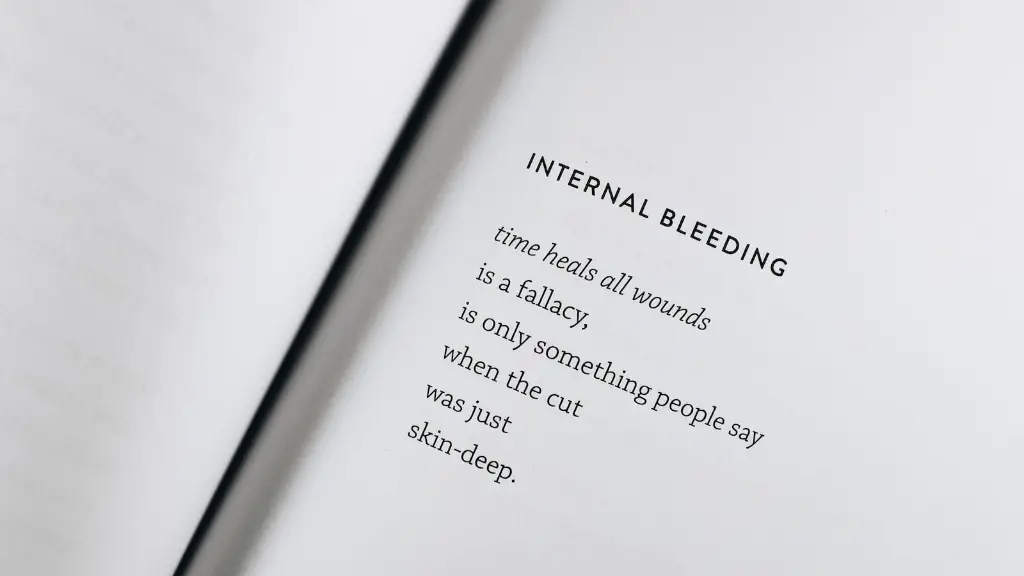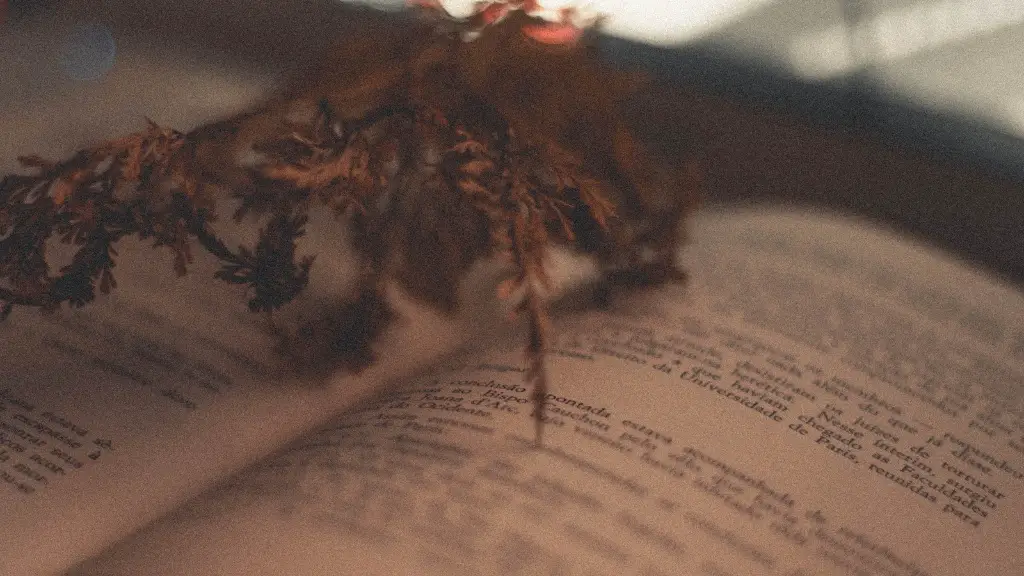Understand the Form of Poetry
In order to study poetry, it’s important to understand the form of poetry. Poetry is a form of literature which uses rhythmic language to express feelings, ideas or tell a story. Poetry often uses figurative language such as metaphors and similes to paint vivid mental images. Each poem has a different structure, and may take forms such as free verse, haiku, limerick, sonnets and cinquains. Every poet has their own distinct style of writing and structures, like Shakespearean sonnets and Ogden Nash’s plays on words.
The poetic elements, such as sound, line structure and form, shape a poem’s meaning and effectiveness. Poets usually include multiple techniques in one poem, such as imagining a scene in one line and then adding a metaphor in the following line. Authors of prose must consider literary techniques, but poets pay special attention to the inner workings of a poem.
Practice the Craft
In order to study poetry effectively, it is essential to practice the craft. Reading and writing poetry can open up a new world of perspectives and meaning. Allowing yourself to be creative or to see the world differently can help motivate you and also make studying poetry much more enjoyable.
Writing your own poetry can be a useful way to learn more about the craft. Start off with simple poems such as haikus. Then you can explore more complex forms such as sonnets. Or write some free verse poetry and explore your own writing style. Writing can be a great way to learn, as it gives you the opportunity to put your own thoughts onto paper and dissect language to understand how a poem may be put together and how it carries meaning.
Study Poetry Through Analysis
In order to understand poetry, it is important to review and analyze the material. Start by reading the poem several times. Whilst reading, pay attention to the elements of a poem such as its word choice, metaphors and symbolism (if any) and how these all work together. Read aloud to get a better understanding of how the poet has used language to get their point across. Grab a pen and paper and write down your observations. Brainstorm about the poem’s main idea and how the poet uses the elements of a poem to express that idea.
Next, determine the poem’s form. Is it a free verse poem, a haiku or something else? Analyze the poetic features of the poem and how they help create its meaning. Research any historical or cultural references used by the poet to get a better understanding of the poem’s context. To dive deeper, read critical interpretations of the poem to understand how different people have interpreted it through their own lens.
Deconstruct Poetic Devices
When learning to study poetry, it’s important to understand the use of poetic devices. Poetic devices such as meter, alliteration and assonance are used to drive the rhythm of the poem. Knowing the different poetic devices will give you better insight into the construction and composition of the poem.
Metre is the pattern of stressed and unstressed syllables in a poem. Alliteration is the repetition of the same consonant sound. Assonance is the repetition of similar vowel sounds. By analysing a poem’s oral features, you can get a better understanding of the structure of the poem.
Learn From Other Poets
Studying the works of acclaimed poets is a great way to learn more about poetry and be inspired by the works of experts. Read the works of your favourite poets and try to understand why their work has become so admired. Look into the lives of these poets and analyse how their life experiences may have impacted their writing. Consider the themes used by the poet and how they use language to create unique and powerful works of art.
Publicly Express Your Understanding
Learning to study poetry is great, but the key to fully understanding it is to share your thoughts and interpretations. Share your interpretation of a poem with a group of like-minded people to get feedback and dive deeper into your understanding. If you’re comfortable enough, you can even recite the poem in front of the group and explain your understanding of it. This will also give you a chance to practice and improve your public speaking skills. These exercises are not only great for understanding poetry but also for getting outside your comfort zone and learning to articulate your thoughts with confidence.
Compare and Contrast with Others
Once you understand the basics of poetry and read a few of your favourite poet’s works, try talking to someone else who loves poetry to further learn and engage with the topic. Compare your interpretations and help each other to better understand the works of poets. Listen to the arguments of someone who studied poetry in the past, and gain valuable knowledge and understanding from their experiences.
Discussing poetry can also help you to sharpen your own analysis. Read the same poem and compare your interpretations. Why did you come to different conclusions? Begin to understand the diversity of interpretations and thoughts that people have about a poem.
Use Technology to Enhance Learning
Technology can be an amazing tool for learning and understanding poetry. Use audio programs and videos to understand how the poet has used the sound of language to make their poem powerful. Audio and video can help you to better understand the rhythm and flow of the poem.
Annotating programs and digital tools can also be useful for studying poetry. Highlight key words and phrases that you have noticed and use annotation tools to make your own notes. Writing down questions and using digital tools to answer them can be a great way to improve your understanding.
Engage with Poetry Through Art
Studying poetry doesn’t have to be restricted to just reading and interpreting poems. Art activities can be a fun way to engage more with a poem and a great way to make studying more enjoyable. Draw a scene from the poem or ask your friends to recreate the poem in a dance. If you’re feeling adventurous, create your own song or video to express how you interpret the poem.
Using art as a medium to engage with poetry can deepen your understanding and help you express your interpretations in a creative way. Select some of your favourite poems or sonnets and explore them through art projects. Engaging with poetry in multiple ways is not only fun but also a great way to get a better understanding of the poem.
Discuss and Debate with Friends
Discussing poetry with your classmates or friends can often be a great way to learn more about a poem. When you talk about a poem with others, you can learn about different interpretations and discover new meanings that you may not have noticed before. Having a discussion with someone can also be a motivation for you to better understand the poem’s related themes and form.
Arguing and debating about a poem can also help you to better evaluate and focus on the elements of the poem. Talking to friends can often help you to better understand concepts that are harder to grasp on your own. It can also be interesting to notice the different perspectives people have when discussing the same poem and to learn from those around you.
Record Your Learning Process
Keep a record of your learning and understanding of poetry. Creating an online portfolio or a notebook of your thoughts and interpretations can be a useful way to help you retain and remember what you have learnt. Refreshing your understanding of the poems can be easier when you look back at past notes and see how your understanding has evolved over time.
You can also use the portfolio to keep track of the poets and techniques you’ve learnt about and to remember the poets you’ve studied. This will help you to stay inspired and motivated, as you will be able to look back and see how far you’ve come and what more you want to learn. This can also be a great tool for creating ideas and asa a source of inspiration for writing your own poems.





